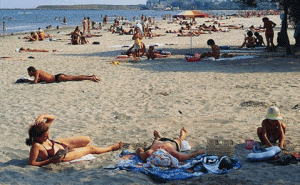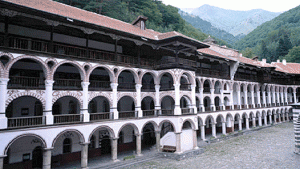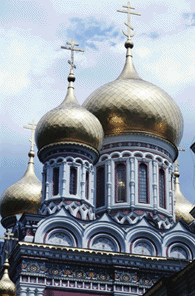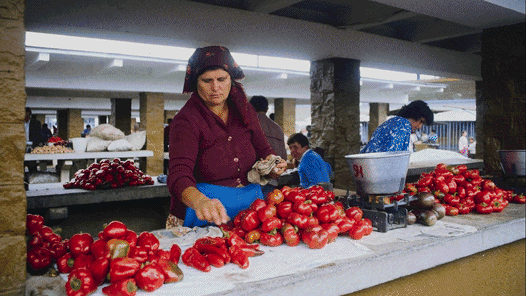
The Republic of Bulgaria is located in Eastern Europe, on the Balkan Peninsula; its capital is Sofia, and other major cities include Plovdiv, Varna, Burgas and Ruse. The eastern border of the country is formed by the Black Sea; the ancient Greeks called it Pontus euxinos, the “hospitable sea,” and its shore, dotted with resorts, is a popular vacation spot.

Koprivshtitsa, just over 100 km east of Sofia, is a “museum town.” Its many historic buildings are exquisite examples of Bulgarian National Revival architecture; it is said that each house here is a work of art. It was in Koprivshtitsa in 1876 that the April Uprising began, a movement to liberate the country from the Ottoman Empire, which had ruled Bulgaria since the late 14th century.

Bulgaria was settled by the Bulgars, who settled the area in the 7th century and were eventually assimilated by their Slav neighbors. Bulgarian is a Slavic language, most closely related to Macedonian, and differs significantly from its other linguistic relatives, such as Czech and Russian. Bulgarian is also spoken in parts of Greece, Romania, Moldova and Ukraine.

In the 9th century, Byzantine missionaries introduced Christianity into Bulgaria, where it flourished; the Bulgarian Church even had its own patriarch until the country fell under the rule of the Ottoman Turks in the 14th century, and the Church was administered from Constantinople. Despite tight control by the Communist government in the 20th century, the Bulgarian Orthodox Church survived and has over 7 million members.

Almost 20% of Bulgarian workers are engaged in agriculture, and farming plays a major role in the national economy; more than half of Bulgaria’s cultivated land is devoted to the production of grains (wheat, corn and barley). Tobacco, cotton, sugar beets and sunflowers (for oil) are also grown.
